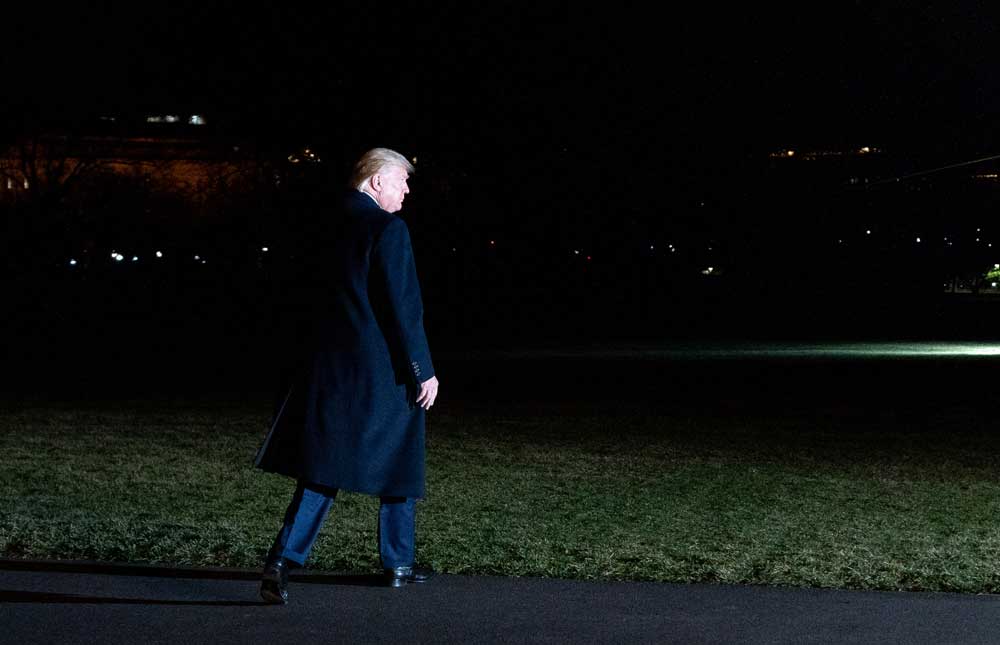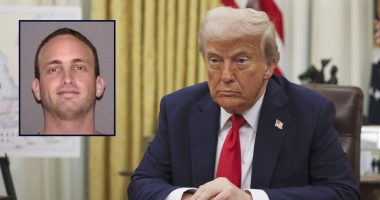
By John Shayegh
Populism is booming. The first US Republican primary is only weeks away and former president Donald Trump, who is a master of populist techniques, commands substantial support. Meanwhile one in three Europeans are now voting for populist parties.
My colleagues and I carried out research of politicians and news media in the US, UK, and Australia that revealed a significant populist strategy to present “elites” – such as opposition politicians, lawyers and civil servants – as setting out to misinform and manipulate the public.
At the heart of liberal democracy lies the principle of pluralism, that there are diverse views on how society should work and that numerous institutions operate independently to balance competing interests. For this principle to work, it’s important that the public trust that these diverse voices act in good faith.
Who are ‘elites’?
However, populists seek to chip away at this by accusing a wide variety of organisations as either being run by “elites”, or working as agents of elite interests.
The specifics may vary depending on the national context, such as who exactly “the elites” are and why they supposedly collude. But the overall function remains the same: to discredit democratic institutions or the media.
This is because when people see institutions such as the judiciary, the media and universities as connected to them and working for the good of the public, the more likely they are to listen to or trust them.
This might sound familiar as prominent populist, Donald Trump, has regularly spoken of “witch hunts” and “the deep state”, making these central to his efforts to deflect accountability for his past actions as he heads for the 2024 Republican nomination for US president.
But this is not a new strategy for him. In his 2016 presidential bid, Trump often spoke of “special interests in control” who “rigged the political and economic system” and criticized various organisations of secretly working to undermine him.
In our research, my colleagues and I argued that this technique is so widespread because its psychological functions are to again erode social trust in democratic institutions. It’s also important to note that the idea of “elite collusion” storylines and terminology are not easily addressed by using fact-based responses because they are not centered on what the information is, but rather, on who conveys the information.
Populists often present themselves as someone who truly works in the public interest, and fighting for the rights of the outsider or “normal working people”. For politicians, this can help propel them to power. It can also help cultivate an idea of shared experiences, such as when Trump recently claimed both he and the public suffered from the elites working against them.
However, buying into this populist way of thinking limits the range of information sources or media outlets that people can engage with or trust. Regardless of how convincing arguments may be or how robust their evidence may seem these “others” are then to be seen as enemies.
It’s important, of course, not to have blind trust in every claim made by established democratic institutions. They can get things wrong, they can be biased, or cause significant harm.
Yet, voters should be equally wary of falling into a state of blind mistrust, where they reject anything a group or organisation says because they are labelled “the elite”.
But it is exactly this kind of generalized, extreme skepticism that populists such as Trump and another Republican presidential candidate Vivek Ramaswamy try to cultivate.
Dismantling democratic checks
There is a further danger in adopting this worldview because this idea of “colluding” with elites, whether they are opposition politicians, academics, writers or civil servants, is a key part of how populists justify dismantling democratic checks and balances.
A case in point is Hungary’s prime minister, Viktor Orbán. His party’s electoral rhetoric repeatedly lambasted national institutions such as universities and the state broadcaster as mouthpieces of powerful elites. Then, when they came to power, they worked to take direct control of these institutions.
As the US approaches the Republican primary season, and the long run towards the November election, this should serve as a significant warning.
Investigative journalists have exposed Trumpite proposals to remove democratic checks and balances and eliminate independent institutions through partisan appointments should he win in 2024. However, it is crucial to also see that, in an echo of Orbán, use of anti-elite talking points are a central part of populist candidates’ justification for taking control.
Not everyone who votes for populist parties harbors anti-democratic or anti-liberal sentiments. They can be critical citizens who value democracy. However, such individuals may be unaware that, despite populism’s self-proclaimed role as the champion of “the will of the people”, it subtly undermines fundamental pillars of liberal democracies.
So, there is an opportunity to reach out to those who may be sympathetic to populist politics but could reject it if they grasped the full implications of, for instance, Trump’s relentless attempts to undermine the US legal system before the 2024 election. To educate people about the impact of populist agendas could empower them to dismiss or question populist language.
Recent studies have demonstrated that educating people about the manipulative tactics employed by politicians and those with a political objective, whether it’s climate change pseudoscience or fake news, significantly reduces their effectiveness.
As the US gears up for the 2024 election, it’s crucial for people to understand how populists cultivate blind mistrust of independent institutions. By fostering this understanding, there’s an opportunity to appeal to voters who lean towards populist politics. Getting them to recognize the potential dangers to liberal democracy could encourage choices at the ballot box that aim to safeguard democratic values.
![]()
John Shayegh is a Postdoctoral Researcher in the School of Psychology at Queen’s University Belfast.
The Conversation arose out of deep-seated concerns for the fading quality of our public discourse and recognition of the vital role that academic experts could play in the public arena. Information has always been essential to democracy. It’s a societal good, like clean water. But many now find it difficult to put their trust in the media and experts who have spent years researching a topic. Instead, they listen to those who have the loudest voices. Those uninformed views are amplified by social media networks that reward those who spark outrage instead of insight or thoughtful discussion. The Conversation seeks to be part of the solution to this problem, to raise up the voices of true experts and to make their knowledge available to everyone. The Conversation publishes nightly at 9 p.m. on FlaglerLive.
Previous Conversations:










